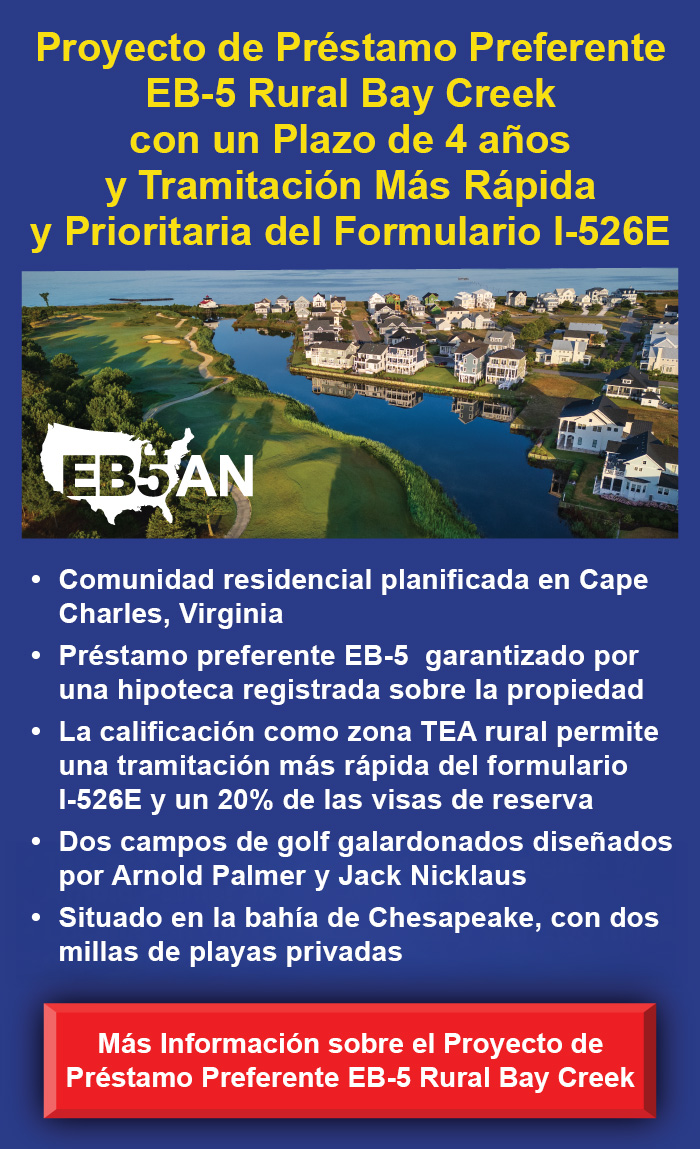The EB-5 visa investment program is an employment-based immigration system in the United States that allows a foreign national and their immediate family members, i.e. spouse and unmarried children under the age of 21, to obtain permanent residency in the United States through a specific financial investment.
How Much Do I Invest?
The minimum amount for an EB5 investment is $900,000 for targeted employment area (TEA) projects, or $1.8 million for non-TEA projects.
The lower EB5 investment amount, fully half the rate of a non-TEA project, is to incentivize investment and growth in economically-deprived areas of the United States. TEAs benefit EB-5 investors by their lower required amount as well as underserved communities by the resulting infusion of foreign capital.
What is a TEA Project?
TEA projects are EB-5 projects located in rural areas or areas experiencing high rates of unemployment. A rural TEA is defined as an area with less than 20,000 residents. A high-unemployment TEA is defined as an urban area with an unemployment rate at least 150% higher than the national average.
What are the Requirements?
In addition to the aforementioned minimum financial investment, an investor must provide documented proof that their EB5 investment capital comes from a legal source. The investor must maintain their EB-5 investment, keeping the investment at risk, for the entirety of their two-year conditional permanent residency period.
The investor must also prove that their EB5 investment generated at least 10 new, full-time jobs lasting at least two years for workers in the United States.
Direct Investment or EB-5 Regional Center?
The majority of investors make their EB-5 investment through a qualifying EB-5 regional center, as opposed to a direct investment in an EB-5 project. Both options lead to permanent residency in the United States, but there are different benefits to each.
Direct investment in an EB-5 project tends to attract investors with significant managerial experience, who want to be heavily involved in the day-to-day management of the new commercial enterprise (NCE) generated by their EB-5 investment. Direct EB5 investment allows an investor more control over their capital and can result in a larger financial return. Regarding EB-5’s job creation requirement, United States Citizenship and Immigration Services (USCIS) only counts jobs directly listed on the payroll of the NCE for direct EB-5 investments.
Investment through an EB-5 regional center tends to attract EB-5 investors who do not want to be heavily involved in the operations of the NCE or who have less managerial expertise. Investors can meet their required level of involvement with the NCE by simply signing on as a limited partner in a project through an EB-5 regional center. This allows investors to settle anywhere in the United States during their two-year conditional permanent residency, not just close to their chosen project. An EB-5 investor could live in Beverly Hills, California, even if their EB-5 project is located in St. Petersburg, Florida, if they invest through an EB-5 regional center.
The job creation requirements are also relaxed for investment through EB-5 regional centers, with USCIS counting indirect and induced jobs in addition to those directly on the NCE’s payroll. Reaching the required 10 full-time two-year jobs is much easier to achieve this way.
Where Do I Start?
An EB-5 investment is one of the fastest ways to achieve permanent residency status in the United States, making it one of the most sought-after immigration programs for foreign investors. Permanent residency in the United States provides families with unparalleled educational and business opportunities as well as a level of political stability and personal freedom seldom seen around the globe.
There are several paths towards achieving a successful EB-5 investment and permanent residency in the United States. EB5AN has tons of free articles, videos, and resources to help investors make the right decision. An investor should do their research and think carefully about which way forward works best for them and their family.


